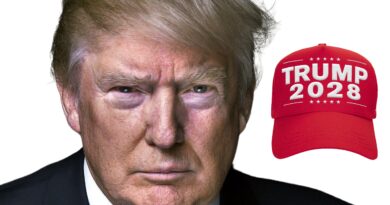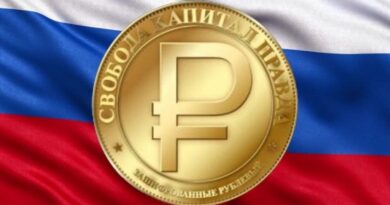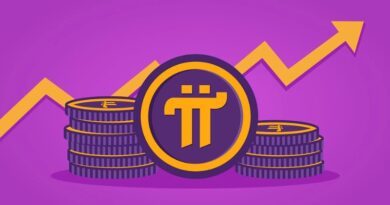Trump’s Impact on Canadian Inflation as Election Day Approaches
When you hear about Donald Trump, you probably think of American politics. But did you ever imagine he could affect the cost of groceries in Canada? As strange as it sounds, Trump’s rising chances in the 2024 U.S. presidential election are playing a surprising role in Canada’s economic outlook—especially when it comes to inflation.
Why Is Canadian Inflation Easing Right Now?
Canada’s inflation rate dropped to 2.7% in April, down from 2.9% the month before. While this may not seem like a huge change, it adds up when you’re filling your gas tank, buying groceries, or paying rent. And here’s the interesting part: part of this slowdown is linked to events happening south of the border.
Sure, domestic factors matter. Lower food and shelter prices helped bring inflation down. But global events, especially in the U.S., are adding extra layers to this story.
Let’s Talk About Oil Prices
One big reason inflation has been cooling down? A drop in global oil prices. Crude oil has been hovering around $75 per barrel, which is much lower than the $100+ prices we saw not long ago.
Fuel is a major inflation driver. When oil prices fall, it lowers costs across the board—from manufacturing to shipping to what you pay at the pump.
And here’s where Trump enters the picture.
What Does Trump Have to Do with It?
As Trump’s chances of becoming president again increase, oil markets are reacting. His potential return is feeding expectations that the U.S. could take a softer stance on Iran—possibly easing sanctions and allowing more Iranian oil into global markets.
This expected surge in oil supply has traders betting on lower oil prices in the future. And when energy becomes cheaper, inflation tends to ease up.
So How Are Canadians Benefiting?
- Lower fuel and energy bills
- Falling transportation costs, which could mean cheaper goods
- More financial breathing room as inflation slows down
Even though none of this is official policy yet, economic expectations play a big role in setting prices. It’s like the markets are already preparing for a Trump 2.0 presidency—and adjusting accordingly.
Is This a Temporary Blip or a Bigger Trend?
No one can say for sure. Trump hasn’t won the election yet. In fact, there’s still a long way to go. But markets aren’t waiting. They’re trying to guess what happens next so they can position themselves ahead of time.
Think of it like this: If you think a big storm is coming, you’ll probably stock up on supplies before the rain starts. In the same way, markets “react” in advance of events by pricing in their expectations.
The Bank of Canada Is Taking Notes
Canada’s central bank is under pressure to lower its benchmark interest rate. With inflation slowing down, the door is opening for potential rate cuts—possibly as early as this summer.
This could affect:
- Mortgage rates – making home ownership a bit more affordable
- Loan payments – easing the cost of borrowing
- Consumer spending – giving people a chance to spend more freely
But there’s a trade-off: cut rates too soon, and inflation could bounce back. Cut too late, and the economy could stall. It’s a delicate balance.
What’s Happening with the Canadian Dollar?
With all this in motion, another interesting effect is happening—the Canadian dollar is gaining strength. As global oil prices drop and interest rate hikes pause, our currency is starting to look more attractive to international investors.
A stronger loonie helps Canadians in several ways:
- Imported goods become cheaper
- Cross-border shopping is more affordable
- Vacationing in the U.S. costs less
But it also makes Canadian exports less competitive, which can hurt manufacturers and exporters who rely on foreign markets. Again, it’s a balancing act.
Is Trump Good News for Canada’s Economy?
It depends who you ask. Some economists argue that Trump’s unpredictable style could create uncertainty, especially when it comes to trade. He’s already hinted at policies that could reopen old trade disputes with Canada. That’s not exactly good for long-term stability.
On the other hand, if Trump’s return leads to lower global oil prices and easier inflation, Canadians might enjoy some short-term relief.
Still, it’s important to remember: these benefits are the result of speculation. They depend heavily on what actually happens now through the November U.S. election and beyond.
Where Does This Leave Us?
It’s a rare situation when the inflation rate in Canada is being swayed by political drama in Washington, D.C. But that’s the reality right now.
So what can you do as a consumer?
Stay Aware of Changing Prices
- Compare gas prices and fuel up when it’s cheapest
- Watch grocery store flyers and look for discounts on essentials
- Stay updated on interest rate decisions from the Bank of Canada
Make Smart Financial Moves
- Refinance your mortgage if rates fall
- Consolidate high-interest debt
- Stick to a flexible budget in case prices bounce back
The Bottom Line
You may not be voting in the U.S. election, but the ripple effects of a possible Trump win are already reaching Canada. From oil prices to borrowing rates to grocery bills, it’s all connected.
So while Canadian policymakers do their best to steer the economy safely, global politics is taking the wheel more often than we like to admit. Whether that’s good or bad—it pays to pay attention.
Keep your eye on the news, track prices, and adjust your financial plans accordingly. Because when the political winds shift in Washington, it’s not just Americans who feel the breeze.









